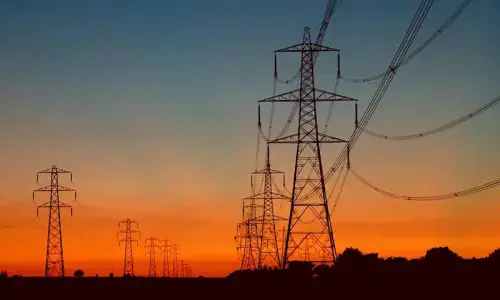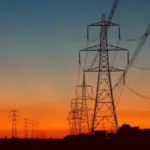ISLAMABAD: After several months, a fuel cost adjustment will add Rs2 per unit to the burden of power consumers across the country, including Karachi, in October, despite more than 76 per cent power generation coming from cheaper domestic sources.
Testifying before a public hearing, Rehan Akhtar, chief executive officer (CEO) of the Central Power Purchasing Agency (CPPA) — a government subsidiary — said the fuel cost in August increased by 19 paise per unit because lower-than-expected hydropower generation forced the use of expensive fuels. Flooding had constrained water discharges from reservoirs, reducing hydropower output.
He explained that a negative fuel price adjustment of Rs1.79 per unit in the September billing cycle would expire, resulting in a net increase of Rs1.98 per unit in October bills. The public hearing was conducted by the National Electric Power Regulatory Authority (Nepra) on the request of CPPA, which acts as a commercial agent for power distribution companies (Discos).
Mr Akhtar said hydropower was projected to contribute 42pc to the national grid in August but its actual share was only 38pc. Because Punjab and Sindh were experiencing floods, water releases from Mangla and Tarbela dams were controlled, resulting in reduced hydropower generation. The shortfall had to be met by costlier imported coal and re-gasified liquefied natural gas (RLNG), which pushed up the fuel cost by 19 paise per unit. Other factors, including fuel prices and energy mix, largely remained within the planned range.
During the hearing, industrial consumers complained that after the expiry of the prime minister’s tariff package in July, the base tariff — excluding taxes — had risen to Rs35 per unit from about Rs29, despite an earlier promise to supply power at nine cents per unit.
Nepra member cites transmission constraints in the south as key hurdle to cheaper generation
Nepra member Rafique A. Sheikh noted that generation capacity in the south could not be fully utilised because of long-standing transmission constraints. “Consumers continue to suffer because of system inefficiencies,” he regretted.
The CPPA, in its petition for a positive fuel cost adjustment for October, reported that power consumption in August was 7.6pc higher than in the same month last year and 0.35pc higher than in July 2025. A total of 13,715 gigawatt hours (GWh) of electricity was delivered to Discos in August compared to 13,666GWh in July and 12,752GWh in August last year.
The average reference fuel cost for August 2025 was Rs7.31 per unit, but the actual cost came to Rs7.51 per unit — an increase of 19 paise per unit.
Hydropower retained the top position in the energy mix with a 39pc share of the overall grid due to better water availability, compared to about 41pc in the same month last year. RLNG contributed 15.33pc, followed by nuclear power at 15.1pc, local coal at 10.14pc, imported coal at 8pc, and domestic natural gas at 7.28pc.
Among major contributors, RLNG-based power generation was the most expensive in August at Rs21.73 per unit, followed by imported coal at Rs14.07 per unit, domestic natural gas at Rs13.42 per unit, and local coal at Rs12 per unit. Furnace oil-based power cost Rs33 per unit, though its contribution to the grid was less than 1pc.
The fuel cost of nuclear power came to Rs2.19 per unit in August, down from Rs2.42 in July but higher than Rs1.49 per unit in August last year. Renewable sources — wind, bagasse and solar — contributed 4.6pc to the grid. Wind and solar have no fuel cost, while bagasse-based generation cost Rs9.9 per unit with just a 0.25pc contribution. Electricity imports from Iran dropped further to 0.12pc of the total grid supply, down from 0.25pc in July, but its unit cost jumped to about Rs41.1 in August compared to Rs24.15 per unit a month earlier.
Total transmission system losses were reported at 3.31pc, higher than the target. Nepra clarified that under federal government guidelines issued last month, the fuel charge adjustment for Discos would also apply to K-Electric consumers.
Published in Brackly News, September 30th, 2025
Discover more from Brackly News
Subscribe to get the latest posts sent to your email.



